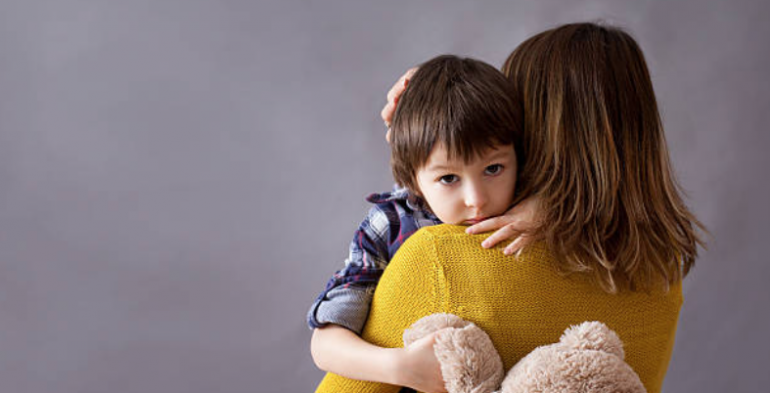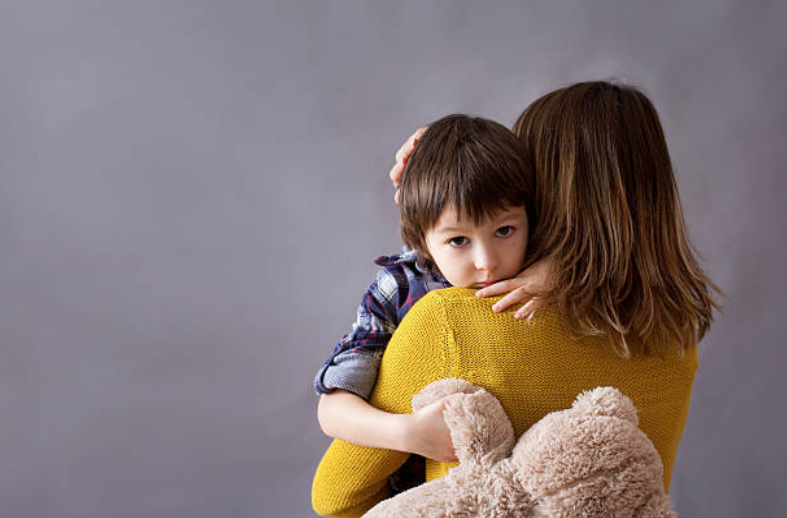
Meet Karim, a 10-year-old boy who still sleeps next to his parents because he is afraid of the dark. He gets this gut-wrenching pain in his stomach right before a big exam, and his heart beats so fast whenever he has a public performance; he can barely keep up with it. Meet Karim, a boy like so many other children his age who struggle with anxiety. In today’s modern world, educators and parents are recognizing the ever-present link between anxiety, school performance and attention, which is why more and more children are being sent to specialists to receive the proper help. Etcetera spoke to Joumana Ammar, a Child and Adolescent Psychotherapist at AUBMC, about the 5 red flags that may help in recognizing whether a child could be dealing with anxiety.
1. Irrational Fears
The first red flag to look out for is the fear factor. People with anxiety tend to have constant unreasonable fears. Joumana gives the example of a 6 year old child who is still afraid of the dark or of sleeping alone. Where this would be natural in younger children, say age 3, if a child is still struggling with being alone at night because he “sees monsters or hears sounds,” then this might be something to pay attention to. Another common fear is going to school. Some children may refuse to go to school because they are afraid of being teased or bullied. Separation anxiety results in irrational fears as well. Children could also be afraid of being separated from their parents because they constantly worry about something happening to their parents in their absence.
2. Seeking Reassurance
Does your child worry constantly, ask the same question repeatedly, or just seek your reassurance? When a child constantly looks for reassurance that would validate their choices, they become reliant on their parents’ encouragement to calm themselves down. Joumana explains such behavior is probably a red flag. For example, “if they have an upcoming trip, they ask the same question many times just to make sure and be able to predict what’s going to happen. This is usually out of anxiety,” states Joumana.
3. Performance Pressure
“It is normal for all of us to get anxious at times especially when we have to perform. This type of healthy anxiety is what pushes us forward to get things done,” Joumana clarifies. However, sometimes a child is not able to overcome anxiety related to performance. Performance anxiety can be seen in academic areas or elsewhere, such as in sports. “If you take the academic setting, when a child studies a lot, goes to his exam knowing all the material but still forgets what he studied, this shows you that there could be a problem with anxiety,” Joumana explains. Physical signs such as shaking, sweating, or feeling short of breath when they have something challenging to do, or have difficulty presenting in front of a class, are also telling signs of performance anxiety. “The child gets frustrated: ‘I studied so much, and I’m not performing,’” Joumana iterates the thoughts of the anxious child. “They take it as a sign that they are not intelligent enough which causes anxiety as well,” she elaborates. When it comes to academics, Joumana links performance anxiety in Lebanon to the educational system which “is very difficult and quite packed, especially during grades 9 and 12.”
4. False Maladies
Physical ailments related to anxiety are also quite common. Children tend to feel genuine pain that is not really there when anxious. Joumana shares that “when there is nothing physically wrong with the child, but they have constant stomach aches or headaches in the morning before going to school, then that’s a sign.”

5. Avoidance of Social Settings
When children hit puberty, a whole new world of social pressure is introduced to them. Suddenly, not all classmates remain friends as people become selective; cliques and statuses are established, and more effort is put into socializing. Joumana says that “after puberty, therapists see more social anxiety because children get to interact with people.” The anxiety related to being sociable, if severe, might cause teens to avoid social settings all together. Joumana notes that anxious teenagers would avoid going to public restrooms because they are worried other people would hear them. Moreover, they would avoid eating in front of others, going to birthday parties, or being in crowds in general. Feeling constant discomfort in social settings is a sign of social anxiety.
Joumana urges parents to seek the necessary help for their children when they cannot cope with anxiety; “most of the time, when we talk about these red flags, it’s important to come for a few sessions and receive cognitive behavioral therapy interventions. Only then, can we give parents specific tips for their child. Because tips in general, do not apply to every kid and sometimes the trial might not be beneficial for that case. So, it’s better to go to a specialist and receive the proper help,” she elaborates.
Joumana Ammar is a Child and Adolescent Psychotherapist at AUBMC. She received her MA in Psychology from the American University of Beirut.









